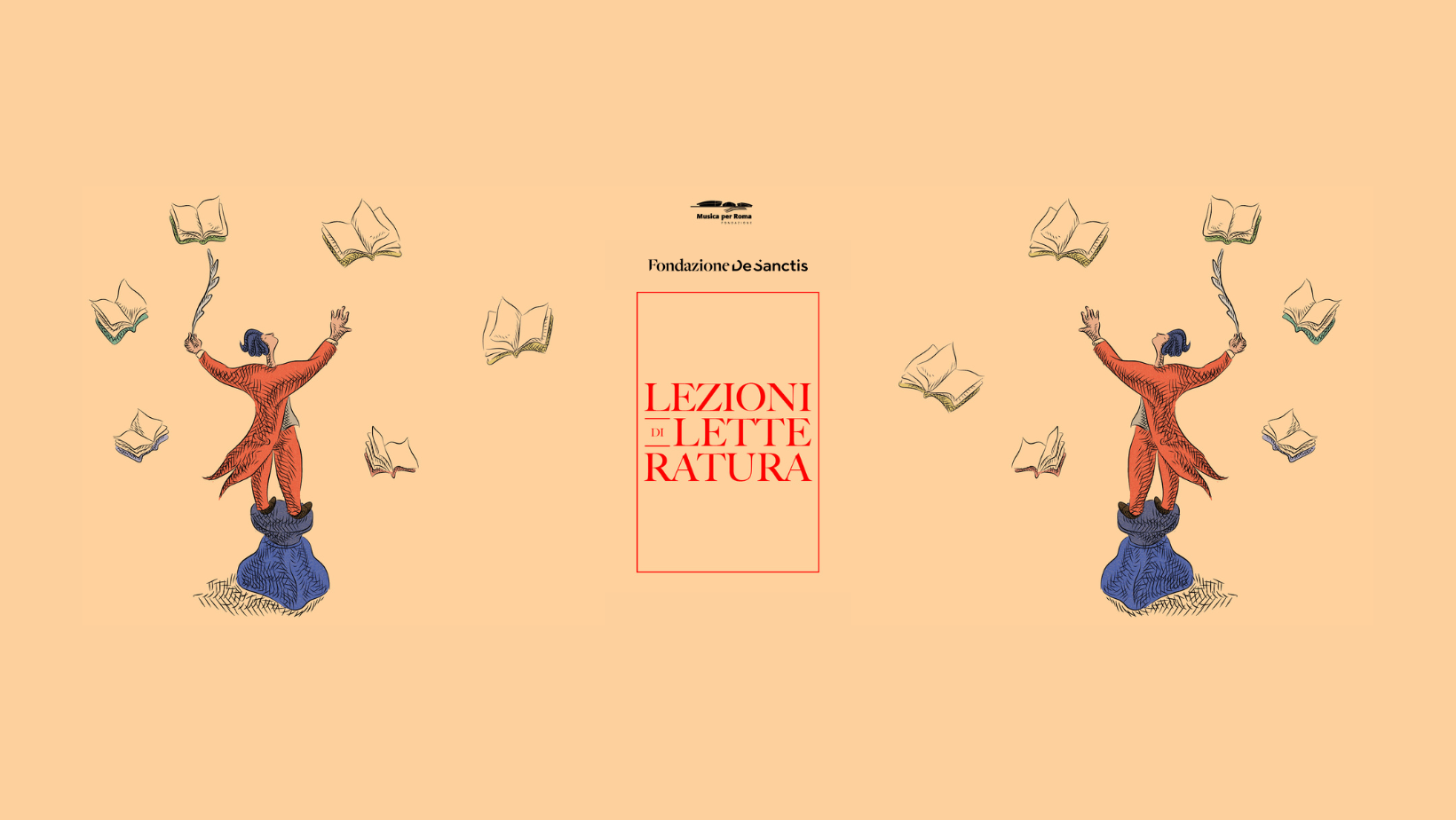
The Fondazione Musica per Roma and Fondazione De Sanctis present the third edition of Lezioni di Letteratura: six meetings, introduced by Pietro Del Soldà, with writers and intellectuals who tell the audience about their most beloved books giving their personal interpretation. A unique opportunity to address through original and topical keys the great classics of world literature, rediscover masterpieces, deal with great universal themes through them and make them useful tools for understanding the present, but above all, to relive and rediscover them filtered through the sensibility and voice of great contemporary authors. The lectures are aimed at the general public of fans and readers and all those who have a desire to learn about and explore some of the most celebrated works of the great masters of world literature, from Stephen King to Giacomo Leopardi via Lev Tolstoy and George Orwell.
If there is one work that has contributed more than any other to making Stephen King the undisputed king of 20th and 21st horror literature, it is undoubtedly “IT” published by the writer in 1986. Writer and radio host, as well as voice of Fahrenheit on Radio3, Loredana Lipperini rereads Stephen King’s horror classic that questions the boundary between necessity and free will.
George Orwell’s “1984” is not a prophecy, as it is trivially regarded, but a satire of totalitarianism. Journalist, writer, pundit and TV host Pierluigi Battista, currently the owner of the “Emergency Exit” column for the Huffington Post newspaper, analyzes one of the most misunderstood of the seminal works in twentieth-century culture and literature, so as to restore the novel to its original meaning.
“Giacomo Leopardi’s “Le operette morali” are philosophical prose, but also dialogues, mordacious tales, sarcastic and ironic sketches that reveal the courage to challenge the dominant ideas of his own time by bringing out a theatrical and storytelling dimension that has only in recent years come into sharper focus. The lecture by writer and lecturer Marco Balzano aims to go over some of the most significant prose in the work, putting it in dialogue with the poems, diary and letters.
Carlo Emilio Gadda, unfortunately, fell prey to middle school teachers who made him an example of multilingualism and tormented students with the identification of “style levels.” Thus his books entered the closet of difficult books. Watler Siti, an Italian writer, literary critic and essayist, analyzes “The Cognition of Pain” by bringing it back to its basic meaning: a plunge into the hells of the unconscious, all the way to the desire for matricide and the power to turn pain into comedy.
A tribute to the most extraordinary portrait of a woman written by a man. A tribute to the strength of love and the complexity of adulterous love, to the beauty of life in the chiaroscuros of the strength of bonds felt and traversed in the gut. Moving between the translation by her grandfather Leone Ginzburg and the more recent one by Claudia Zonghetti, Lisa Ginzburg, writer, translator and historian, rereads “Anna Karenina” in its being a masterpiece of passion, compassion, a fresco of the quivering of the world within every heart in the unbreakable and infallible word of Lev Tolstoy.
Raymond Queneau’s “Exercises in Style” are a spectacular demonstration of literary juggling, a practical handbook of creative writing but also the secret product of a reflection on speech, its freedom and availability and (how else to say it?) its exercise. Stefano Bartezzaghi, an Italian journalist, writer and semiologist who has been a contributor to La Repubblica for more than two decades, on which he has been signing a crossword puzzle a day since April 2019, rereads the French writer’s collection of short stories.
A dialogue between Marco Bellocchio and Alfonso Berardinelli on Piergiorgio Bellocchio’s Diario del Novecento.



